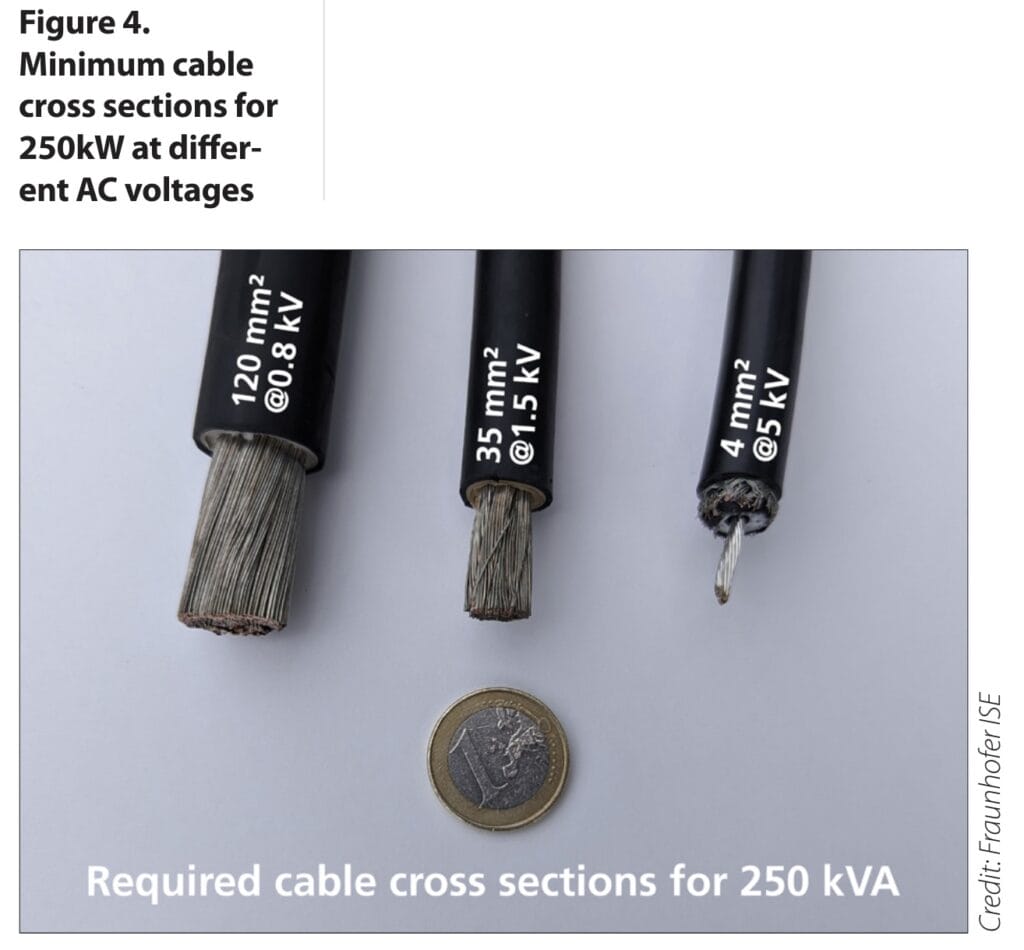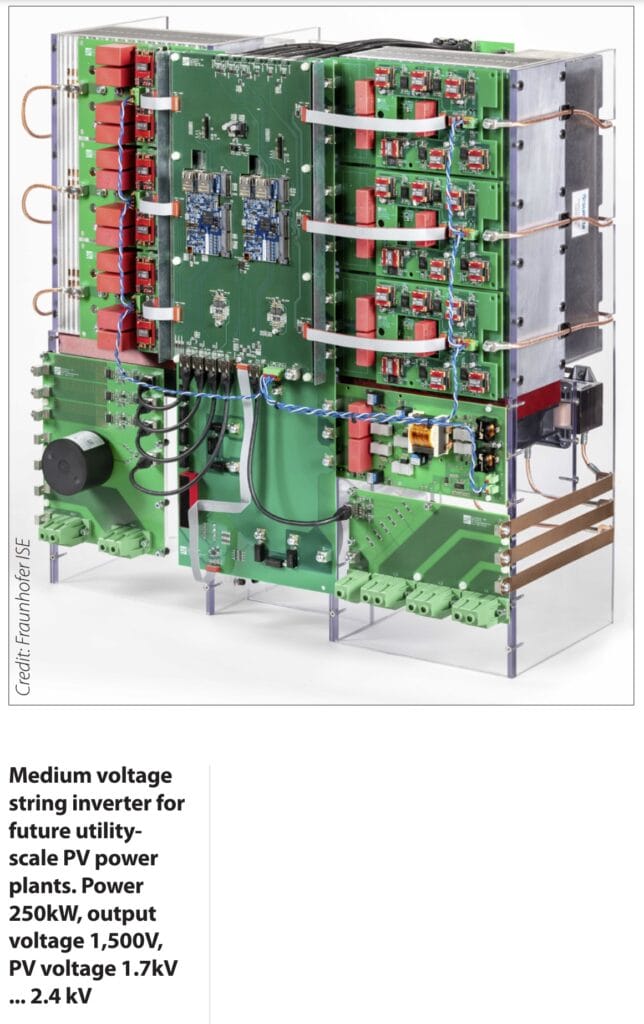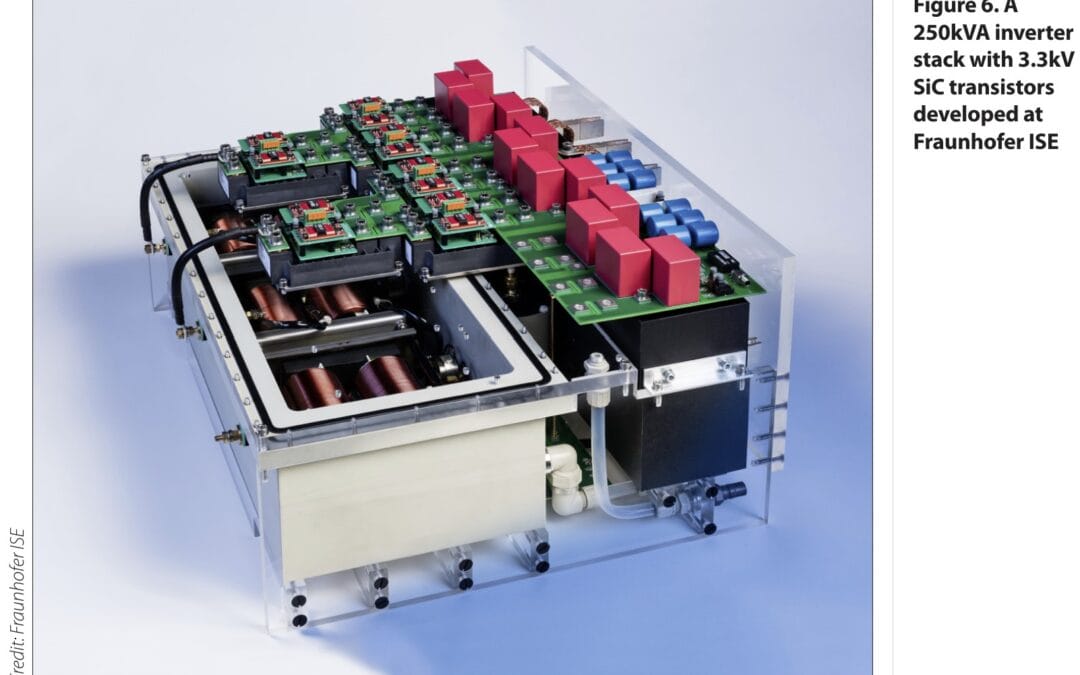The installation costs and the BoS hardware (additional items like wires, and electrical components) costs now account for 40% of the total costs
increase in output voltage comes into play. The currents can be reduced by increasing the system voltage. This leads to savings at various points: the mostvisible effect is the significant reduction of cable cross sections

doubling the output voltage (i.e. halving the current) leads to a reduction in the conductors’ cross section of approximately 75%
medium voltage does not only affect the cables; the increased voltage can also increase the output of the subsystems… A higher output is difficult to achieve in a low-voltage transformer due to the large copper cross sections. If the voltage is increased, a winding with the same cross section can transmit a higher power. With a voltage of 1,500V, 10-12MVA is already possible in a transformer and thus in a substation. This results in a smaller number of transformers and switchgear, while the power plant size remains the same. This also means fewer construction works and lower installation costs. At the same time, there is more space for PV modules.

world’s first mediumvoltage string inverter and successfully put it into operation on the grid (above image). It was developed as part of the publicly funded MS-Leikra project. The inverter has an output voltage of 1,500Vac with an output of 250kVA. It has a two-stage design. The step-up converter with a PV input voltage of 1.7kV to 2.4kV is based on 3.3kV SiC semiconductors. The inverter section was constructed using hybrid ANPC modules. Four silicon and two SiC semiconductors are used here. This topology allows the major advantages of SiC to be utilised at only slightly higher costs.
the Mengjiawan project in Yulin City in the Shanxi province of China. Here, a pilot plant with a DC voltage of 2,000V was built and put into operation
